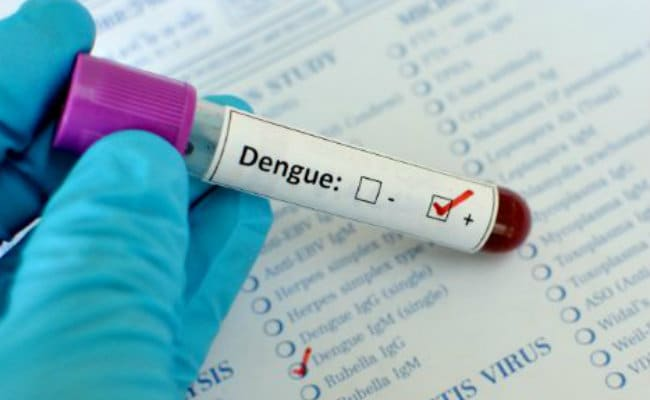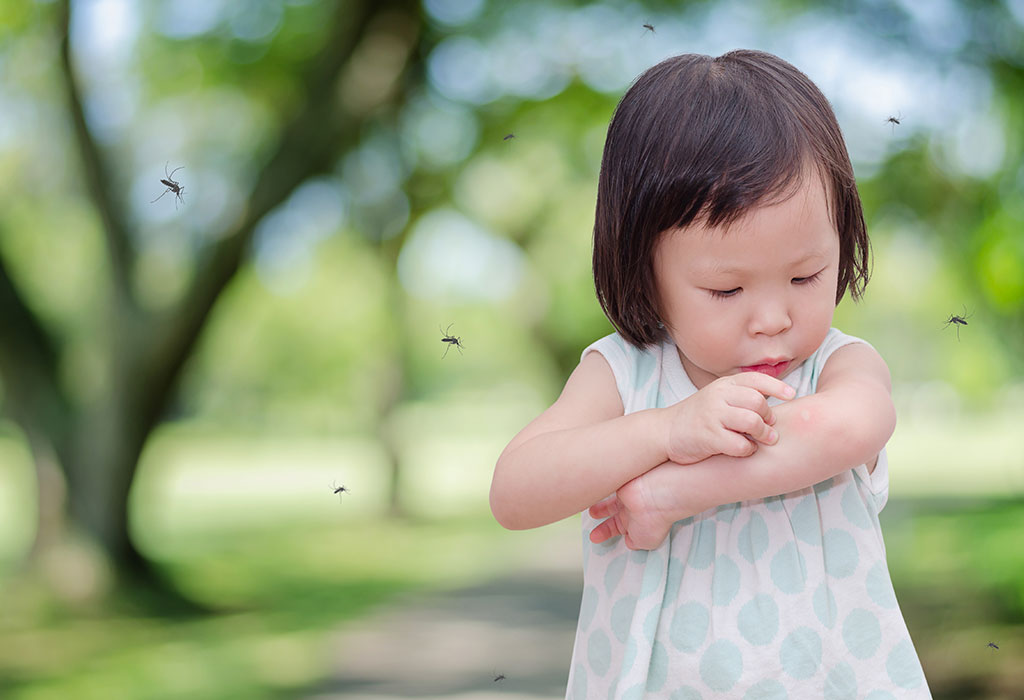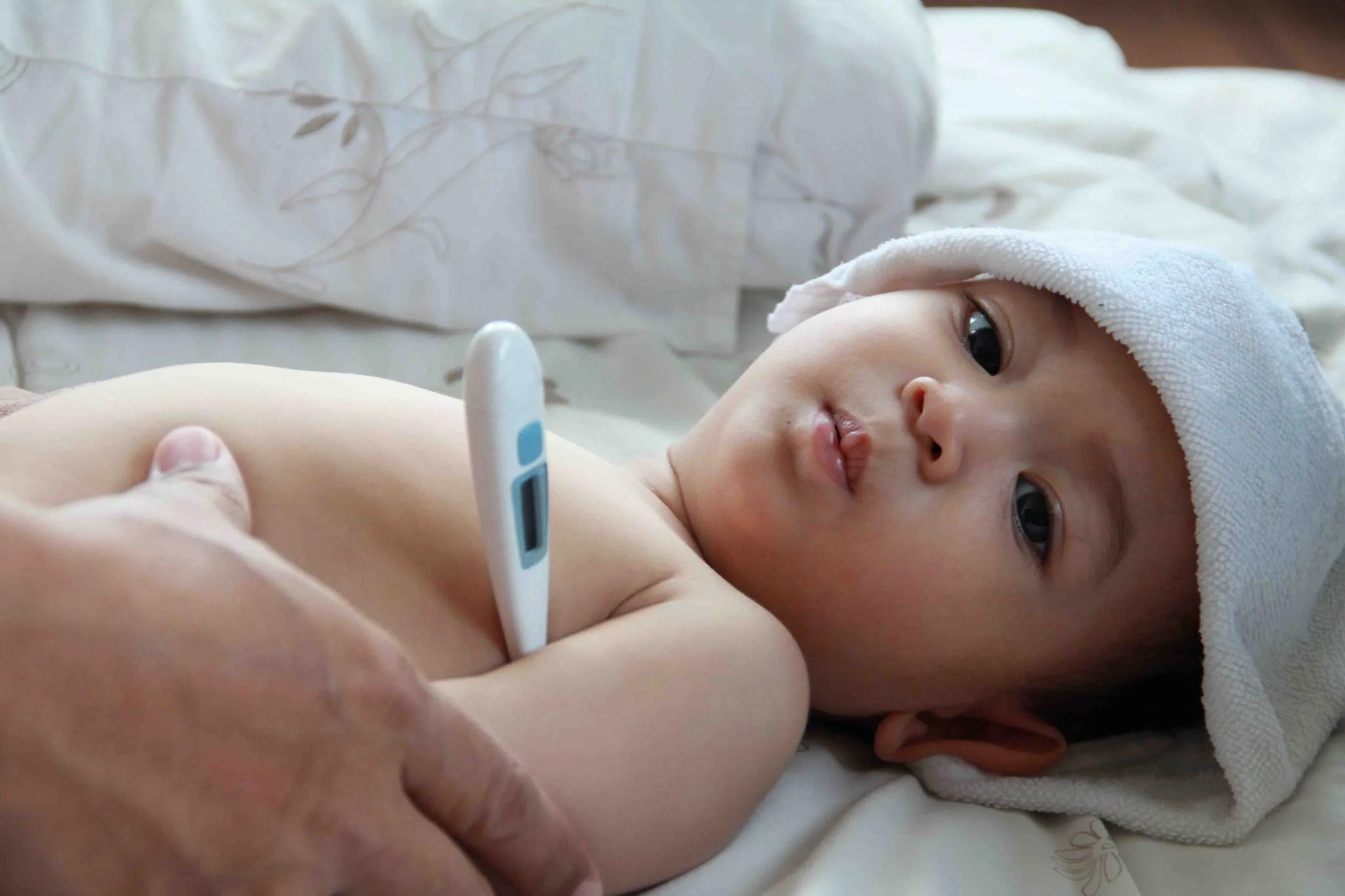Dengue Dengue is a disease caused by the dengue virus, transmitted to humans by the infected Aedes mosquito. There are 4 dengue virus serotypes (ie groups of the same species) – DEN-1, DEN-2, DEN-3 and DEN-4. Dengue fever usually lasts 2 to 7 days. Most people recover from a dengue infection without being hospitalized.

Expression of awareness Dengue fever in children Babies and young children are not easy. (Illustration)
However, young children often do not have obvious symptoms, so it is only when the disease develops that parents seek treatment, sometimes it is too late.
While the symptoms of dengue In children and those who have mild illness for the first time, older children, adults, and people with previous infections may have moderate to severe symptoms.
What are the symptoms of a child with dengue fever?
When having dengue fever, children often start the illness with sudden signs of high fever, before that, parents will see that the child is completely healthy and normal. The time of fever in children lasts from 2-7 days, accompanied by signs of congested skin, flushed face, headache, muscle aches and joint pain.
In some cases, children may experience conjunctivitis, fatigue, sore throat, vomiting and nausea. With infants, there may be accompanying symptoms such as diarrhea or a runny nose. During this time, the signs and symptoms of the disease are often nonspecific and difficult to distinguish from other viral infections.
Next, the patient may have other bleeding manifestations such as: the appearance of petechiae (red dots that do not disappear on their own when stretching the skin), usually located on the legs, forearms, chest, armpits, waist . In addition, manifestations of mucosal bleeding such as bleeding teeth, nosebleeds, bloody stools.
When a child has dengue fever, the child usually starts the illness with a sudden high fever. (Illustration)
For female puberty may appear accompanied by vaginal bleeding. These symptoms rarely occur in the early days. The liver may become enlarged after a few days. If you go to the hospital and have a blood count test at this time, the results will show leukopenia, which is a warning sign that the child has Dengue hemorrhagic fever.
Starting from 3-7 when sick, children will start to lower their fever from 37.5-38.5 degrees Celsius or lower, some children appear additional warning signs such as fatigue, lethargy. , vomiting, hepatomegaly, mucosal bleeding or in some cases progressing to hemorrhagic shock with cold hands and feet, rapid and light pulse, clamped or unmeasured blood pressure.
All these manifestations need to be hospitalized and adhere to the instructions of the doctor. If the state of shock is prolonged, the baby can be damaged in many organs, even causing death.
Some children at the time of day 6, 7 of the disease, begin to recover, eat well, especially appear rashes on hands and feet, making parents worried, but according to doctors, this is the stage. is recovering.
Treatment methods when children have dengue fever
There are no antibiotics or antiviral drugs to treat dengue. Treatment is by rest and follow-up closely with the doctor to monitor the baby’s condition. The treatment for dengue fever is:
– Replace fluids & electrolytes: Drink plenty of fluids (eg, water, electrolytes, juices, and soups) to stay hydrated. Ensure a good amount of urine passes through each day (about 1 to 2 liters per day) to provide enough water for the body.

Dengue fever prevention is the best way to protect children. (Illustration)
– Symptom relief and fever control:
Pain relievers (eg paracetamol) to relieve pain and control fever.
Medications may also be prescribed to treat nausea, vomiting, and itching. The rash will usually clear up in 2 to 3 weeks.
Avoid aspirin and other anti-inflammatory drugs such as Brufen (ibuprofen), Voltaren (diclofenac), Synflex (naproxen) or Ponstan (mefenamic acid) because they can cause stomach ulcers and subsequent bleeding, and worsen them add platelet function.
– Prevention and control of bleeding:
Let your child rest in bed, reducing the risk of falls and injury to prevent unnecessary bleeding
+ Do not arbitrarily use drugs to inject children.
If your baby has bleeding, bruising or swelling, call the doctor immediately.
In all dengue infections, every effort should be made to keep an infected child from being bitten by a mosquito. This will help prevent the disease from spreading to others.
at Blogtuan.info – Source: Eva.vn – Read the original article here





